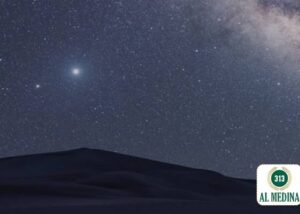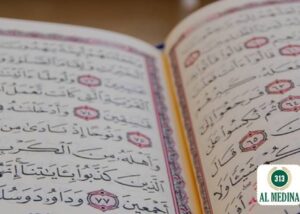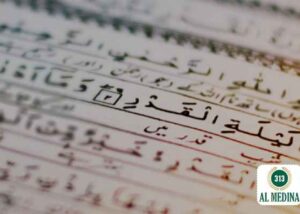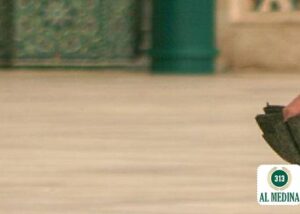What are the Signs of Laylatul Qadr? There are many messages going around predicting Laylatul Qadr or signs of it. Many of these messages do not quote the Prophet ﷺ. Instead they have different Shaykhs predicting Laylatul Qadr and mentioning signs for it. Is this allowed?
Quran
Hadith
Islamic Text
بِسْمِ اللَّهِ الرَّحْمَنِ الرَّحِيمِ
In the Name of Allah Most Merciful Most Kind
Short Answer:
No, Islam does not permit Shaykhs to speak about matters of the unseen definitively without referencing Quran or Sunnah. This is irrespective of Shaykhs predicting when Laylat al-Qadr is or what the signs are. In both of these cases, they (the Shaykhs) must reference the Holy Quran or Noble Sunnah.
Speaking about the unseen (Ghayb):
قُلْ لَا يَعْلَمُ مَنْ فِي السَّمَاوَاتِ وَالْأَرْضِ الْغَيْبَ إِلَّا اللَّهُ
Say, no one in the Heavens or Earth knows the unseen except Allah (Most High). (Surah al-Naml, 65).
The Holy verse (Ayah) above is one of several verses that mention that the knowledge of the unseen is restricted to Allah (Most High). In Surah Al-Imran (3:179), it is clarified that some of this knowledge is given to the Prophets. However, knowledge of the unseen does not extend beyond the Prophets. Therefore, no Shaykh or scholar can speak about matters of the unseen – like Laylatu al-Qadr – without referencing Quran or Sunnah.
قُلْ آللَّهُ أَذِنَ لَكُمْ أَمْ عَلَى اللَّهِ تَفْتَرُونَ
Say, did Allah permit you to do so, or are you fabricating lies against Allah. (Surah Younus, 59).
وَلا تَقُولُوا لِما تَصِفُ أَلْسِنَتُكُمُ الْكَذِبَ هَذَا حَلالٌ وَهذا حَرامٌ لِتَفْتَرُوا عَلَى اللَّهِ الْكَذِبَ إِنَّ الَّذِينَ يَفْتَرُونَ عَلَى اللَّهِ الْكَذِبَ لا يُفْلِحُونَ
Do not falsely declare with your tongues, ‘This is lawful, and that is unlawful.’ Fabricating lies against Allah. Indeed, those who fabricate lies against Allah will never succeed. (Surah al-Nahl, 116).
Above are just two of numerous verses rebuking the disbelievers for speaking on behalf of Allah (Most High) without evidence. Consequently, this is something Muslims must be vigilant regarding as there are many Muslims who do speak about the unseen (Ghayb) without evidence.
Signs of Laylat al-Qadr from Hadith
وَقَالَ رَسُولُ اللهِ صَلَّى اللهُ عَلَيْهِ وَسَلَّمَ: ” إِنَّ أَمَارَةَ لَيْلَةِ الْقَدْرِ أَنَّهَا صَافِيَةٌ بَلْجَةٌ كَأَنَّ فِيهَا قَمَرًا سَاطِعًا سَاكِنَةٌ سَاجِيَةٌ لَا بَرْدَ فِيهَا، ولَا حَرَّ وَلَا يَحِلُّ لِكَوْكَبٍ أَنْ يُرْمَى بِهِ فِيهَا حَتَّى تُصْبِحَ، وَإِنَّ أَمَارَتَهَا أَنَّ الشَّمْسَ صَبِيحَتَهَا تَخْرُجُ مُسْتَوِيَةً لَيْسَ لَهَا شُعَاعٌ مِثْلَ الْقَمَرِ لَيْلَةَ الْبَدْرِ، لَا يَحِلُّ لِلشَّيْطَانِ أَنْ يَخْرُجَ مَعَهَا يَوْمَئِذٍ
(Sayidina) Ubadah bin al-Samit (May Allah Most High be pleased with him) narrated that the Messenger of Allah ﷺ said, ‘Indeed the sign of the night of power (Laylat al-Qadr) is that it is clear and bright, as if there is a brilliant moon in it. It (the night) is still and tranquil. It is neither cold nor hot. Shooting starts are not permitted in it until the morning. Indeed, from its signs is that the Sun will rise with serenity without (an abundance of) rays in the morning. Like the moon in the middle of the month. The Shaytan cannot ascend with it on that day.’ (Musnad Ahmad, 22765).
رَوَاهُ أَحْمَدُ، وَرِجَالُهُ ثِقَاتٌ. (مجمع الزوائد)
(Imam) Ahmad narrated it [the hadith above]. The narrators are reliable (Thiqaat). (Imam al-Haythami, Majma’ al-Zawaid).
عَنْ أَبِي هُرَيْرَةَ، أَنَّ رَسُولَ اللهِ صَلَّى اللهُ عَلَيْهِ وَسَلَّمَ قَالَ: فِي لَيْلَةِ الْقَدْرِ: ” إِنَّهَا لَيْلَةُ سَابِعَةٍ – أَوْ تَاسِعَةٍ – وَعِشْرِينَ، إِنَّ الْمَلَائِكَةَ تِلْكَ اللَّيْلَةَ فِي الْأَرْضِ أَكْثَرُ مِنْ عَدَدِ الْحَصَى
(Sayidina) Abu Hurairah (May Allah Most High be pleased with him) narrated that the Messenger of Allah ﷺ said regarding Laylat al-Qadr, ‘It is the 27th or 29th night. Indeed, on that night the angels on earth are greater in number than the number of pebbles.’ (Musnad Ahmad, 10734).
رَوَاهُ أَحْمَدُ وَالْبَزَّارُ وَالطَّبَرَانِيُّ فِي الْأَوْسَطِ، وَرِجَالُهُ ثِقَاتٌ. (مجمع الزوائد)
(Imams) Ahmad, al-Bazaar and al-Tabarani in al-Awsat narrated it. The narrators are reliable (Thiqaat). (Imam al-Haythami, Majma’ al-Zawaid).
Explanation
Some of the signs referred to in the authentic Hadith narrations as shown above have been mentioned or alluded to in Surah al-Qadr itself. Also, since these signs have been mentioned in Hadith, they can and should be propagated to the Ummah as they are from the Messenger of Allah ﷺ himself. Furthermore, these signs should be preferred over those (signs) that some people propagate from their Shaykhs.
Conclusion
One of the practices that differentiates this ummah from other religious communities is that we do not permit people to speak conclusively about matters of the unseen without evidence. This is because we recognise that only revelation from Allah (Most High) has the authority to speak about religious or spiritual matters.
Additionally, the Prophets are the only people who had access to that revelation. Therefore, only they can speak about it. As such, everyone else must quote from Quran and Sunnah when speaking about the Ghayb (unseen). This includes identifying the night of power (Laylat al-Qadr) or its signs. For that reason, no Shaykh or scholar should speak about this matter without citing Quran or Sunnah.
And Allah Most High Knows Best.
–Answered by Shaykh Noorud-deen Rashid (14.04.23)






